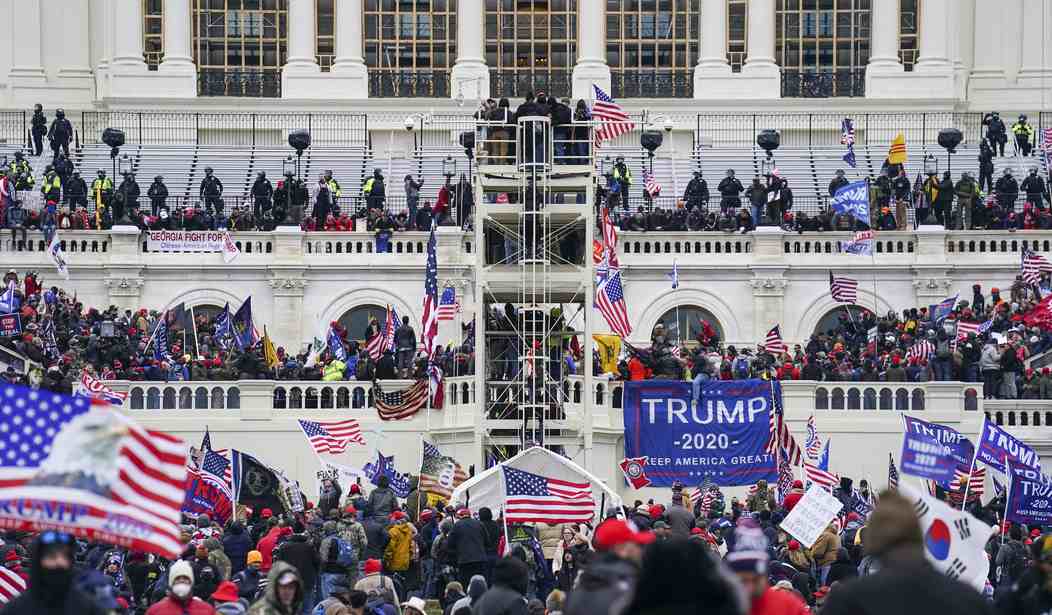As the oft-described Party of “Law and Order,” criminal justice reform tends to take Republicans out of their comfort zone. The continued, politically motivated prosecutions of January 6th participants, however, illustrates clearly why criminal justice issues must serve as a prerogative for conservatives, rather than a partisan blind spot.
The federal government determines what is “legal” and what is “criminal” for purposes of federal policies and jurisdiction. Its agents then enforce that legality based on the administration’s interpretation of the law, and then deprive citizens of their life and liberty for crossing that line. Our Founders understood the huge responsibility of such power, and of the consequences when abused. This is precisely why much of our Constitution, including the Bill of Rights, concerns itself with the judicial process.
Notwithstanding those many constitutional limitations, the unmistakable trend over the past half century has been to expand government power to criminalize all manner of behavior.
Contrary to recent rhetoric from the Right, this is not a “guilty man’s” problem exclusively. Examples abound of law-abiding citizens being swept into federal investigations for nothing more than carrying large amounts of cash through an airport checkpoint, or making bank deposits the government considers to be “suspicious.”
In fact, the federal criminal code has ballooned to the degree that legal scholar Harvey Silverglate posits that the average, “law-abiding” citizen commits three felonies a day. This makes criminal prosecution not so much a matter of if, but when the government decides its interests are advanced by enforcing one or more of the several thousand criminal laws on the books already.
Recommended
Defending oneself against the full weight of a federal prosecution is an enormous, often impossible task, even if innocent. Citizens can spend years and a small fortune establishing that innocence. Those without financial means often will take a guilty plea for no reason other than to spare themselves a lengthy and difficult fight, the outcome of which is always far from certain.
When innocent people are forced to take prison sentences simply to avoid personal and financial ruin, it can hardly be considered a true “law and order” system of justice. It becomes one of “law and power.”
It is no secret that the Biden Administration has made it a point to use the Department of Justice as a bludgeon against political foes in a way that makes the Nixon-era prosecution of its “enemies” pale in comparison. Examples range from January 6th Capitol protestors, to aggrieved parents of school-age children.
We have seen all too clearly in recent years who the federal government wants to be at the defendant’s table in a federal district court.
There also is an economic cost to such overbroad use of prosecutorial power. Packing prisons with individuals who pose no real risk to society has created a safety crisis that threatens not only the lives of the incarcerated, but prison guards and staff as well. Working on criminal justice reforms is more than a social issue; it is an opportunity to protect taxpayers and civilian workers alike.
One such example is the EQUAL Act, which is designed to correct the sentencing disparity in crack cocaine offenses. While many conservatives may be reluctant to get behind bills such as this, the legislation would bring a needed degree of balance and fairness to sentencing. In addition, it would generate significant savings for over-stretched prison systems, by allowing thousands of incarcerated individuals to be considered for sentence reduction under certain defined conditions. For these reasons, the EQUAL Act already has nine Republican co-sponsors in the Senate; but that number should be much higher.
Bipartisan work on criminal justice issues is critical to ensuring an accountable and restrained judiciary; something that must remain a cornerstone of our representative democracy for citizens of all stripes. In virtually every respect, abandoning the criminal justice playing field to the liberals is dangerously short-sighted.
Supporting limited but meaningful criminal justice reform does not mean adopting the social agenda of the radical Left; far from it. Joining with non-radical Democrats (yes, there are some) to craft and support reforms to a justice system that has become far too government-heavy, actually is the true core of conservative governance.
Many Republican governors, including those from Texas and my home state of Georgia, have recognized this. Republicans in Congress should as well.
Bob Barr represented Georgia’s Seventh District in the U.S. House of Representatives from 1995 to 2003. He served as the United States Attorney in Atlanta from 1986 to 1990 and was an official with the CIA in the 1970s. He now practices law in Atlanta, Georgia and serves as head of Liberty Guard.
























Join the conversation as a VIP Member